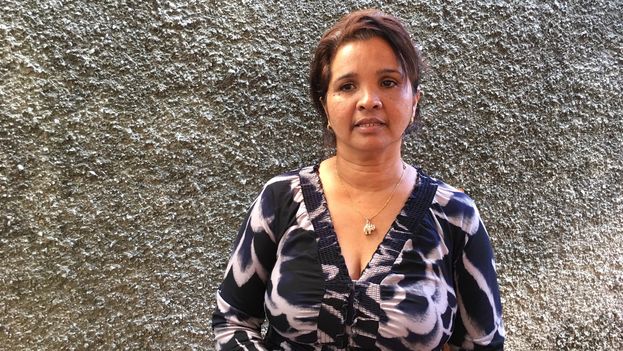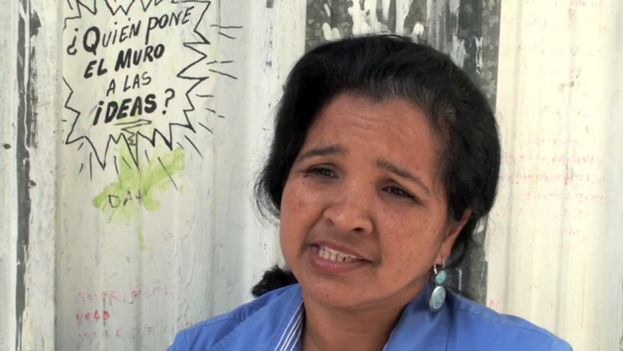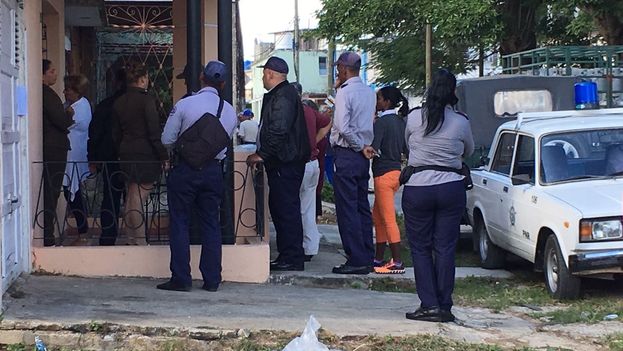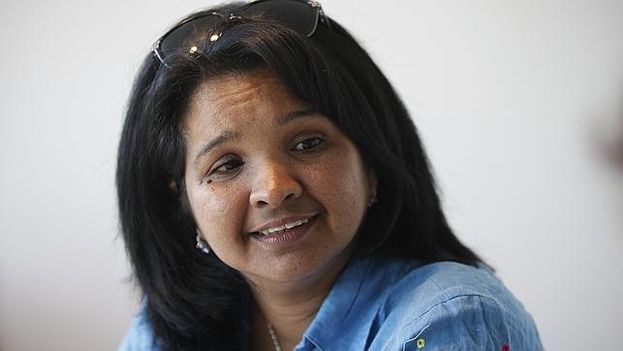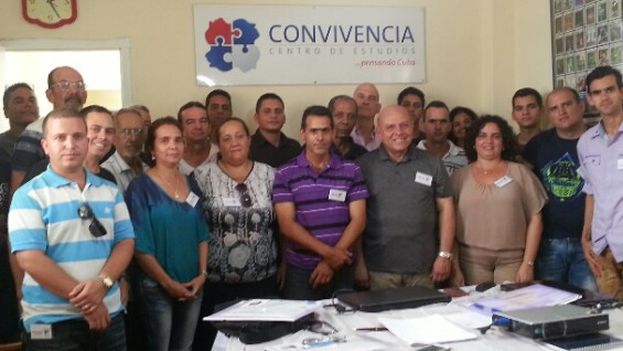Convivencia, Pinar del Rio, 20 November 2015 — December 17, 2014 opened, without a doubt, a new stage, a new phase in the recent history of Cuba: it was the announcement of the process of restoration of diplomatic relations between the governments of Cuba and the United States. Both leaders welcomed the mediation of Pope Francis and of the Canadian Government. On 20 July 20 and 14 August 2015 the respective flags were hoisted and the embassies re-opened. The first visit by a Secretary of State of the United States to Cuba in 70 years occurred.
A year after this announcement we can make a preliminary assessment of what is seen and what is known so far:
1. Diplomatic mechanisms have been created and the first agendas for the normalization process that is announced as “long and complex.” These agendas are organized from the least contentious to the most difficult issues, such as democracy and human rights, which are always on the table, according to statements from US officials.
2. The US government has taken presidential measures that clearly show the will to change its policy towards Cuba. Some have considered these bold and positive, others excessive, others disproportionate, and others mistaken. continue reading
3. The government of Cuba has not reciprocated with the same agility and has not implemented measures proportionate to those of the United States. Some believe that “something” is changing [in Cuba], but that there is no correspondence [between the measures taken by both countries]; others believe that the slowness [in Cuba] casts doubt on the will for real change.
4. The Cuban people, in general, welcomed the announcement with great expectations that have been deflated, to the point that, to some, it is a reasonable to wait, but to others they stampede to leave the country, fearing the disappearance of the Cuban Adjustment Act or a “closure.” Disappointed by frustrations reiterated for over 50 years, there is a part of the Cuban people who have lost the ability to believe and hope before any announced change: they are the skeptics and the indifferent.
5. The Cuban people in general suffer directly from the grave situation of the national economy and the inability to meet basic needs, which has worsened to the point that it is looking increasingly like the 1990s [after the collapse of the Soviet Union and the withdrawal of its subsidies to Cuba], a terrible memory.
6. The gap between those who suffer such hardships, who are the majority, and the few who have access to state businesses with foreign investment or private businesses with family investment, is increasingly visible and more convincing that a system of dubious “social justice” or rather, state paternalism, is perishing.
7. The political system is facing a serious zone of conceptual turbulence where, on the one hand, there is a debate between the empty discourse that is increasingly removed from reality and, on the other hand and at the same time, that same government has decided to open itself to international markets and foreign investment in an attempt to recycle its state monopoly capitalism, without any real labor unions nor respect for other labor and social rights; a system so old, so inhumane and so obscene, that the “socialist” discourse itself denounces it. This type of turbulence is called by some the transition process and by others systemic destabilization.
8. The opposition is also undergoing a process of conceptual turbulence and redefinition of methods and organizational structures. On the one hand, it maintains the necessary denunciation of the systematic violations of all human rights, especially the public repression of every Sunday [a weekly day of mass arrests of the Ladies in White and other activists].
At the same time, the opposition is trying to respond with answers and policy proposals to the new challenges that the scenarios described above and others will present. In this turmoil, which some call a process of maturation — the defining of political and party roles and construction of consensual strategic agendas that respond, above all, to the needs of the nation — while others call this process diversification, and still others consider it disunity.
9. The diversification of roles in Cuban civil society is another sign that this year all sectors of the nation have questioned themselves, and in some sense been dislocated, and that we are in the process of redefining strategies, missions, objectives and working methods, testing Cubans’ capacity for renewal, proposals and creativity.
The incipient fabric of independent Cuban civil society is responding to these challenges and new scenarios, certainly with mistakes and delay, but surely with awareness that growth and social impact depend on two key factors: our commitment and service to the needs of the people, and our organizational skills and vision of the future to determined our specific missions and to focus on one of the many different roles that a prosperous and democratic nation needs.
10. Another sign is the unequal and unfair struggle between the new state enterprises and the private and blockaded small businesses and entrepreneurs. Even without wholesale markets, permitted self-employment activities are ridiculously reduced to a “List of Licenses” that encompass medieval crafts and do not include professional and other production and service companies. Also, the self-employed do not enjoy the security of a legal framework and they are harassed and extorted by a host of corrupt state inspectors. This corruption is the seed of cronyism, extortion, gangsters and viral agents for the perpetration of a failed state. There is still time to reverse this degenerative process.
11. It is clear and legitimate, it is necessary and very convenient, that some civil society groups will find their niche, their role and performance. This civic fabric will be a far more diverse civil society that serves the public. We can see that it is defining itself, increasingly, through the role of independent journalists and their blogs, agencies and media. Consensus building platforms for civil society are being defined. Opposition political parties are defining their own ideas, programs, statutes and actions of social impact.
They have begun to organize partisan political platforms in search of coordinated agendas. They have begun to create systematic spaces of education in ethics and civics for the creation of plural thinking in present and future Cuba. Organizations in defense of human rights are consolidating national monitors, reports, and international efforts. Legal services and their independent organizations are consolidating as competent and professional advisors.
Platforms to demand the release of all political prisoners, a general amnesty, ratification of the United Nations Covenants on Human Rights and a more committed peaceful civic activism through public demonstrations such as marches and national campaigns are being strengthened and publicized.
No one should claim that their service is the only one and exclusive. Everyone is needed and enriches the nation. We need to recognize that all these roles and services are equally valid and necessary and could be a sign of the democratic identity of each person.
12. Family, cultural, academic, political and other kinds of exchanges, although still asymmetrical, are an opportunity and a preview of the real normalization that will not be completed until not only are relations and free exchanges established between the governments, but also between the respective civil societies, and among the same and only nation that lives on the island and in the diaspora.
13. Civil society is undoubtedly taking a step forward, defining its nature, ahead of the Cuban government: all of civil society has chosen, and sustains with its actions, the rejection of violence as a method of struggle and strict adherence to peaceful methods. Meanwhile, the Cuban government still uses, promotes or passively tolerates violent methods of repression. Acts of repudiation are a national disgrace that the Cuban authorities should not display before the world, for the good and prestige of Cuba. Acts of repudiation and repression must stop immediately.
14. Civil society is broader than all this, and extends increasingly across diverse sectors of Cuban society, on the island and in the diaspora. The public debate is an inseparable part of the existence, the work and structures of civil society. New signs of increased civic roles are the ongoing and varied public debates through social networks among different parts of our society.
Just to name some of the most recent, the cultural sector is fully engaged in the “Cremata case” and also in the proposed new Film Law; in the political opposition sector there is a debate between the various actors with regards to marches and other forms of demonstrating dissent; in the business world there is a growing controversy between opportunities for foreign investment and the [Cuban government] blockade on the entrepreneurial initiatives of Cubans; in the religious sector, there is a debate around the role of lay Catholics in the Cuban transition encouraged by the visit of Pope Francis and the upcoming celebration in February of the 30 year anniversary of the Cuban National Ecclesial Meeting (ENEC).
These and many other diatribes are unmistakable signs of a struggle between the new and the decadent. Between change and inertia. Between old and new methods, even to achieve the same ends. They are not signs of decay or division. They are signs of growing pains and the gestation of the new times.
We should not be scandalized by these debates, we must only look to their ethics and veracity. We are not discouraged by the diversification of the roles of Cuban civil society, it is the best sign that the fledgling democracy has come first to those who are most independent. It is just a preview of things to come. So we are attentive to the quality of these gestations because our democracy will be of the same quality.
A year after the 17th of December (“17D”): We have new scenarios; the stage is already set; there are ever more secondary actors coming from the rest of the world to see what is happening and who will have a role in this work. However, the fundamental is still missing: bringing to the stage the script and the principal protagonists. That is, the essence of the work is lifting the Cuban state’s blockade on the freedoms and initiatives of its citizens and the total democratization of the nation. The principal protagonists are: the current government and authentic Cuban civil society. And the plot should be developed through inclusion, negotiation and national dialog.
May the year 2016, which comes with new developments and opportunities, be a time when all Cubans assume the writing of this new national script and rise to the new stage so that no spurious, authoritarian or lone actor steals our work for a free, prosperous, responsible and happy nation.
Pinar del Rio, November 20, 2015
227th Birthday of Father Felix Varela
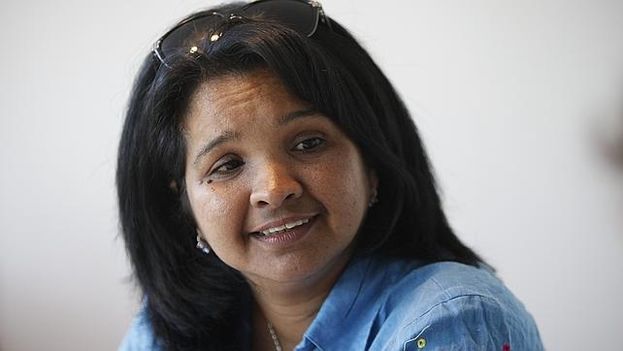
![]() 14ymedio, Havana, 30 December 2017 — For a whole decade the economist Karina Gálvez Chiu (b. 1966, Pinar del Río) has contributed to the development of the Convivencia (Coexistence) Project in a constant and effective manner. Editor, lecturer and a keen analyst of the Cuban reality, this woman from Pinar del Río born in the complicated decade of the ‘60s is one of the most visible faces of the initiative directed by Dagoberto Valdés.
14ymedio, Havana, 30 December 2017 — For a whole decade the economist Karina Gálvez Chiu (b. 1966, Pinar del Río) has contributed to the development of the Convivencia (Coexistence) Project in a constant and effective manner. Editor, lecturer and a keen analyst of the Cuban reality, this woman from Pinar del Río born in the complicated decade of the ‘60s is one of the most visible faces of the initiative directed by Dagoberto Valdés.
